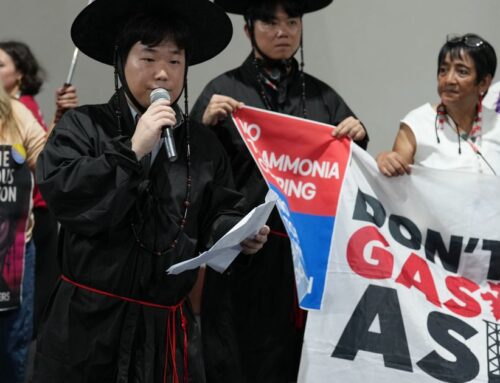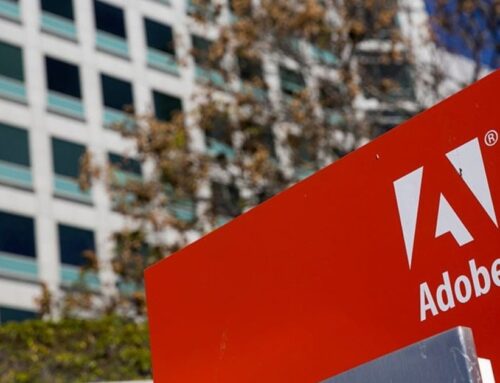Data centers could get big Michigan tax breaks without clean energy, groups warn
November 19, 2025
LANSING, MI – Massive data centers powering tech giants’ artificial intelligence ambitions could get millions in Michigan tax breaks without being powered by clean energy because of a “loophole” in state guidelines, environmental groups and consumer watchdogs warn.
Lawmakers passed tax exemptions in 2024 meant to lure the largest “enterprise” data centers from companies like Google, Microsoft and Meta and they were signed by Gov. Gretchen Whitmer.
To qualify, the power-hungry server warehouses would have to obtain at least 90% of their forecasted electricity usage from clean energy. The requirement was a concession to environmental groups who worried data centers drawing more power than entire cities would derail the state’s goals to cut planet-warming emissions by supercharging demand.
The law defines clean energy to include nuclear power, renewables like wind and solar and natural gas plants that include carbon capture systems.
But, advocates claim, economic development officials with the Michigan Strategic Fund have interpreted the requirement in a way that lets data centers off the hook.
“The MSF’s current interpretation creates a loophole big enough for any data center to walk through, one that undermines Michigan’s nation-leading clean-energy laws,” said Tim Minotas, legislative and political director for the Sierra Club in Michigan, in a statement.
Rules outlined in a footnote of the MSF guidelines, published in August, allow data centers to meet the 90% clean energy requirement by signing a long-term contract with a utility that is “actively pursuing compliance” with state standards calling for increased reliance on clean energy, passed by Democrats in 2023.
But those benchmarks don’t kick in until 2035 and beyond, and big Michigan utilities are still heavily reliant on fossil fuels. That means under the guidelines, data centers could technically meet the clean energy requirement now without actually being powered by clean energy, advocates say.
Four groups — Michigan Environmental Council, Natural Resources Defense Council, Sierra Club and Citizens Utility Board of Michigan — warned the Michigan Strategic Fund board that they believe the guidelines don’t comply with the letter of Michigan law in a letter dated Nov. 13. They called for revisions.
“MSF’s Guidelines currently interpret the Tax Acts in a manner that renders the 90-percent clean energy standard meaningless,” the letter reads.
The groups believe the law requires data centers to procure 90% of their power from clean energy within six years, the allotted timeline to meet the qualifications for a tax break.
The tax exemption eliminates the state’s 6% sales and use tax on data center equipment and construction materials. It could likely reduce state revenue more than $90 million by 2065, according to a legislative analysis.
So far, no data center project has applied, officials say.
But the state’s first “hyperscale” project, a partnership between ChatGPT creator OpenAI and multinational tech firm Oracle slated for farmland near Ann Arbor that aims to begin construction within months, has signaled it intends to pursue the incentives. Development firm Related Digital, advancing the project, said as much in a legal settlement with Saline Township, where the data center will be built.
Tech industry observers previously told MLive the tax breaks, in place in many other states, were key to Michigan landing the more than $7 billion project, hailed by Whitmer as the largest one-time investment in state history.
But advocates worry that the increase in electric demand from data centers will push utilities to continue relying on polluting fossil fuel power plants. The Saline Township project alone will add 1.4 gigawatts, equivalent to a million homes or the output of an entire nuclear power plant.
There are examples in other states.
Utilities are seeking to delay the retirement of Mississippi and Georgia coal plants amid demand growth fueled by data centers, part of a national trend. In Virginia, home to the largest concentration of data centers in the world, power providers are proposing new gas power plants.
“Without strong enforcement of the laws, data centers could cause Michigan ratepayers to be saddled with new dirty energy sources for decades,” said Amy Bandyk, executive director of the Citizens Utility Board of Michigan, a nonprofit watchdog for residential ratepayers, in a statement.
DTE Energy, set to serve the OpenAI project, has pledged it will maintain compliance with state clean and renewable energy standards, and will not delay the planned closure of its last coal-fired power plant in 2032.
State economic development officials have not publicly explained their interpretation of the 90% clean energy requirement and did not answer questions from MLive about the advocacy groups’ claims ahead of publication.
The MSF board has received the groups’ letter, and it will be included in the body’s meeting packet for its Dec. 9 meeting, said Michigan Economic Development Corp. spokesperson Danielle Emerson in a brief statement.
Under the law, the MSF must certify a data center project qualifies for the tax breaks.
Other requirements include a minimum $250 million capital investment, the creation of at least 30 full-time jobs, a hookup to a municipal water system and certification under green building standards. Projects must fulfill the requirements within six years of applying.
If you purchase a product or register for an account through a link on our site, we may receive compensation. By using this site, you consent to our User Agreement and agree that your clicks, interactions, and personal information may be collected, recorded, and/or stored by us and social media and other third-party partners in accordance with our Privacy Policy.
Search
RECENT PRESS RELEASES
Related Post




